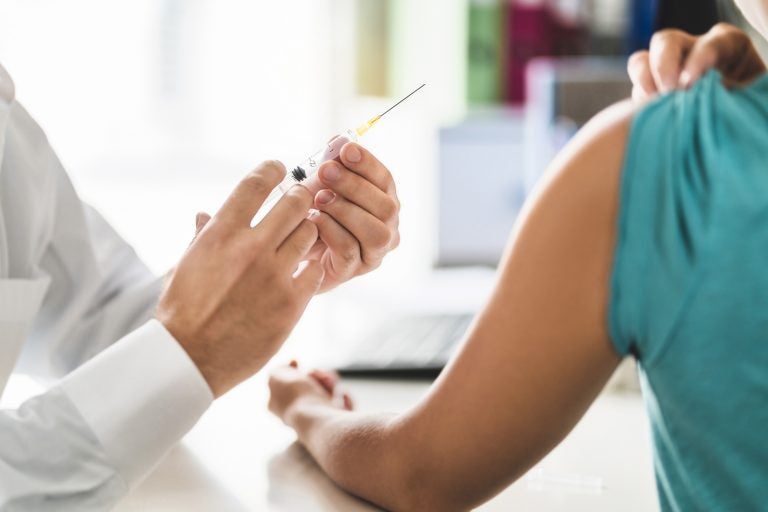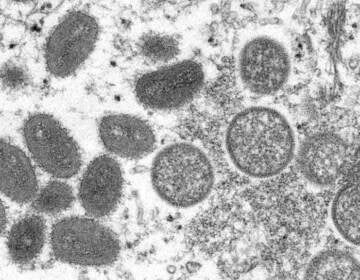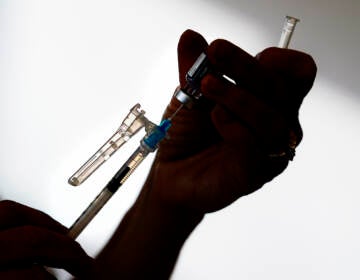As monkeypox vaccines reach Philly, access and testing concerns remain
Philadelphia health department officials say they have concerns about the limited scope of the initial monkeypox vaccination campaign.

Philadelphia health officials say they have concerns about the scope of the initial monkeypox vaccination program. (TeroVesalainen/Bigstock)
Philadelphia has received 225 monkeypox vaccines from the federal government — but only those who have come into close contact with an infected person will be eligible for the shot. Some public health experts worry that limiting vaccine access could mean the disease will continue to spread within a population that already faces barriers to health care.
As of Friday, the Philadelphia Department of Public Health has 16 confirmed or probable cases. (Probable cases are still awaiting confirmation from the Centers for Disease Control and Prevention.) There are 32 confirmed cases in Pennsylvania, 20 in New Jersey, and one in Delaware.
Though still rare in the U.S., cases are on the rise worldwide. The World Health Organization reported a 77% weekly increase in confirmed infections last week, to more than 6,000. Moreover, scientists warn that it’s likely cases are being undercounted. Children and people with immune deficiencies may have more severe cases, but the disease is rarely fatal. WHO said three people have now died in connection with the outbreak, all of them in Africa.
In Philadelphia, vaccines are being distributed through the health department and are only available to people who have had close contact with an infected person, as identified through contact tracing.
Philadelphia Department of Public Health officials say they do have concerns about the limited scope of the initial vaccination campaign.
“We recognize that in a large metropolitan area on the I-95 corridor, the 225 doses we have are likely less than ideal to address an ever-evolving situation,” said Philly health department spokesperson Matt Rankin in an email.
Rankin said those with symptoms can get tested at a physician’s office or urgent care clinic.
But some public health experts are concerned that without a robust testing strategy, cases will continue to spread.
“We need to increase testing, because we still don’t really have a good handle on how many people are actually infected or have been infected with monkeypox in our population, or really anywhere,” said Dr. Michael LeVasseur, an epidemiology professor at Drexel University’s Dornsife School of Public Health.
He said that lessons from COVID-19 should have taught cities to prepare earlier.
“A lot of these things are sort of, ‘If we act too soon, then it might be a giant waste of resources as opposed to waiting until we know there’s a crisis and then acting.’ It’s not the best way to go about doing it,” he said.
Monkeypox is spread directly through human-to-human contact of a rash, scab, or bodily fluids. The CDC also notes that it can be transmitted through respiratory secretions and intimate physical contact, such as kissing, cuddling, or sex.
In addition to flu-like symptoms, like fever and chills, the disease typically causes a rash of raised lesions on the face and across the body.
Currently, monkeypox is disproportionately affecting the LGBTQ community, which concerns Dr. Oni Blackstock, a primary care and HIV physician based in New York.
She fears that this group of people — especially those who are Black and brown — already face challenges accessing adequate health care.
“Challenges are Black queer individuals getting access to providers, having their complaints taken seriously, receiving pain treatment that they need, or even just getting access to vaccines and to testing,” she said.
Blackstock said that considering “supplies are scarce” during this outbreak, a lack of monkeypox testing and vaccinations might amplify existing health inequities.
“Some of my concerns have been how Black and brown, queer, and trans people are hearing about monkeypox,” she said. “Are they getting the information that they need? And then are they getting the information about how to access prevention, testing, and treatment services?”
The monkeypox vaccine is a two-dose regimen that should be administered within the course of a month. The Philadelphia health department says antiviral medications are available for residents who have a confirmed infection, and local officials are working with the federal government to “allocate as much vaccine as necessary to curb this outbreak.”

Get daily updates from WHYY News!
WHYY is your source for fact-based, in-depth journalism and information. As a nonprofit organization, we rely on financial support from readers like you. Please give today.






